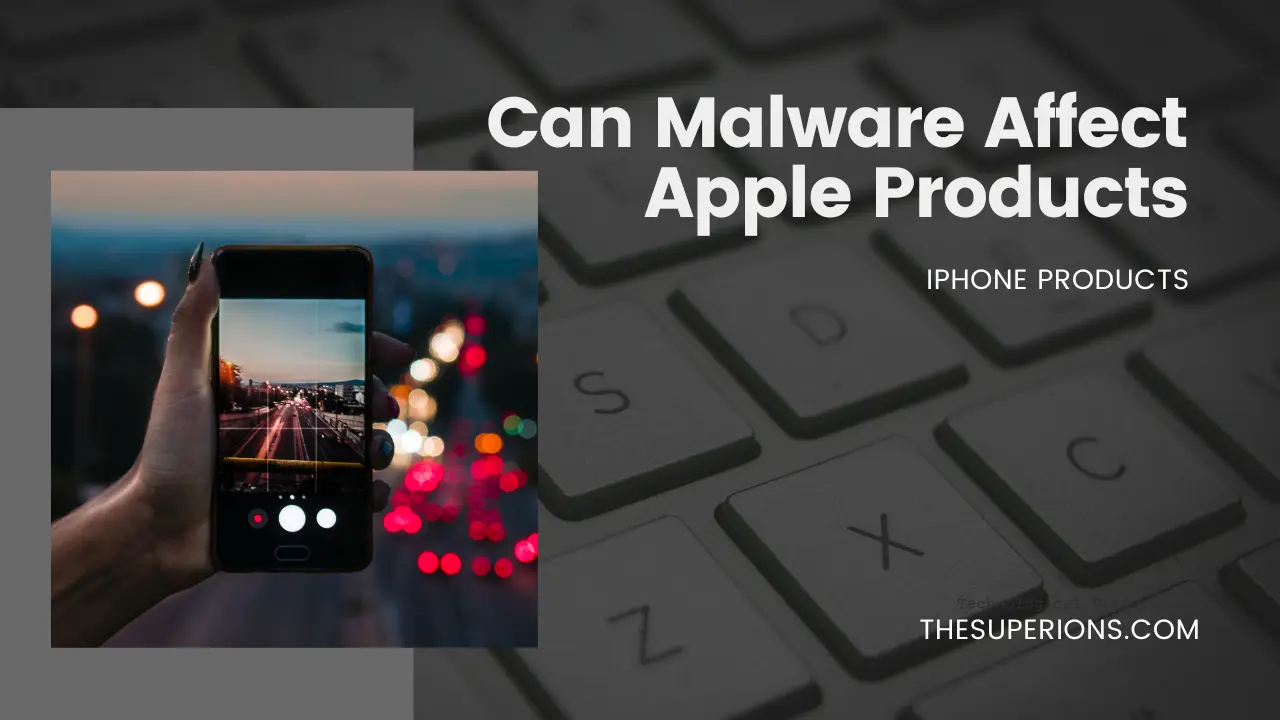Can Malware Affect Apple Products?
Impeccable attention to customer safety is among Apple’s key advantages over competing products in the desktop and mobile space. Its reputation is such that many users believe Apple products are immune from malware and similar threats. Is that really the case? Join us as we scrutinize these claims and offer helpful tips on improving the security of Apple devices.

An Airtight Security Ecosystem?
The iPhone, iPad, and gadgets that run on derivatives of iOS are among the most secure devices available. That’s because iOS is security-focused and implements features like sandboxing. Apps undergo a thorough vetting process before being allowed on the App Store. They’re also sandboxed, meaning each app only gets minimal working permissions and minimal to no interaction with other apps or iOS.
While rare, malware threats on iOS-based devices aren’t unheard of. Spyware named Pegasus is a notorious example. However, it saw limited use since it targeted government officials. The first iOS Trojan was discovered recently. It sets its sights on a much larger user base, targeting banking and sensitive personal information.
People Also Read?
What about Macs?
While targeted less than Windows PCs, Macs are an order of magnitude less secure than iOS-based devices. MacOS has defensive measures like the Malware Removal Tool and Gatekeeper. Still, MacOS is more vulnerable since it’s easier for users to download programs from unauthorized sites or run potentially harmful code.
What Threats Do Apple Devices Face?
Due to their comparatively lax security, Macs are susceptible to a broader range of threats. These include different kinds of malware like conventional viruses, ransomware, adware, and Trojans. MacOS might have a much smaller market share than Windows, but some hackers still find it a worthwhile target.
The average iPhone or iPad user has less to fear. However, jailbreaking your device changes this. A jailbroken iPhone allows users to access ordinarily restricted settings and permissions. Circumventing these lets one install third-party apps. Developers may outfit these apps with security vulnerabilities or backdoors that allow access to or even take control of someone’s iOS device.
Finally, there’s always user error. While not necessarily malware, social engineering attacks like phishing can do similar damage. All it takes is to fall for a convincing email and enter your credentials into a copy of a legitimate website to have login credentials, personal info, or banking details stolen.
Simply using your devices can expose more personal data than you’re comfortable with. Being active on social media, using apps with location tracking, or taking part in online surveys are all sources for data brokers or people finder sites to compile and potentially sell a profile of your information and activities. You can prevent this by contacting a data removal service provider like Incogni and having them intervene on your behalf to take down any such collected information.
People Also Read?
How to Keep Your Apple Devices Safe?
A closed ecosystem and focus on user protection create a strong basis. Augmenting it with proven cybersecurity precautions will ensure that all your Apple products remain uncompromised and safe.
Start by checking whether the operating system and apps are updated automatically. Apple was able to identify and neutralize the Pegasus threat with a fast update. Applying new ones as they are released is crucial for maintaining up-to-date security and taking advantage of new features.
Refrain from jailbreaking your phone and stick to legitimate apps from the App Store. Even then, pay attention to user reviews and avoid any apps that don’t seem trustworthy. Take stock of the apps on your device. Delete any you don’t recognize or haven’t used in a while, especially if they’ve stopped receiving updates.
Be wary of connecting to unsafe networks like public Wi-Fi without proper protection. Unless you use a VPN’s superior encryption to hide your activity, remember that any malicious person monitoring that network could infer which sites you’re visiting. That’s why you should always protect your devices. Get a VPN for your iPad, iPhone, Macbook, or simply. You can protect all of your devices from being infected with this handy tool.
People Also Read?
Conclusion
Apple products are more secure than their Android and Windows counterparts. Still, that doesn’t mean there aren’t chinks in their armor hackers can’t exploit. Now that you’re aware of this, you can take appropriate steps to use your devices even more securely.





